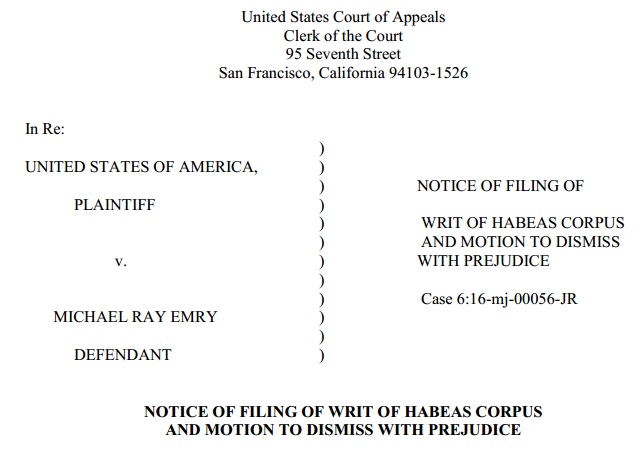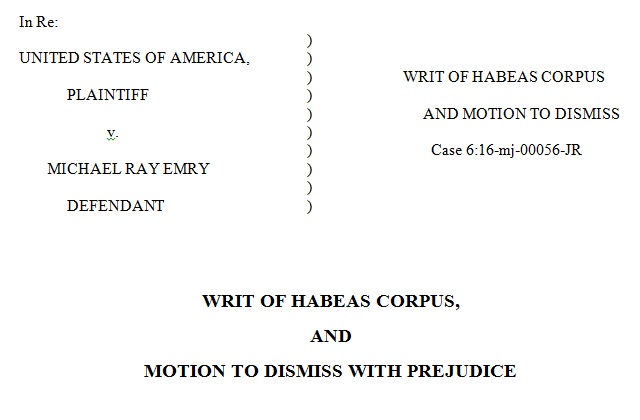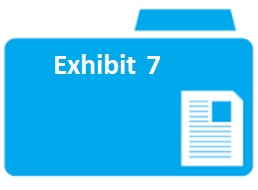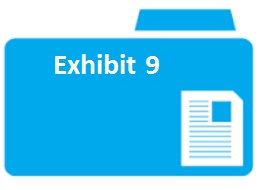
Comes now Michael Ray Emry to move this Honorable Court to take judicial notice of this WRIT OF HABEAS CORPUS and MOTION TO DISMISS WITH PREJUDICE the Matter of the United States of America versus Michael Ray Emry hereinafter called “Defendant” who is being unjustly held as a federal prisoner in the custody of the Lane County Adult Corrections, 101 W. 5th Avenue, Eugene, Oregon 97401-2695, inmate number 3921422.
As a matter of necessity due to the inability of Defendant to prepare and file this WRIT himself, it is being filed in forma pauperis on Defendant’s behalf by Vicky L. Davis, Registered Agent and Managing Editor for Defendant’s news website, The Voice of Idaho News, LLC (TVOI News), xxxxxxxxxxxxxxxxxxxxxxxxxxxxxxxxxxxxx. Notice should be taken that Registered Agent for TVOI News has had no training in the law and does not purport to represent Defendant in the capacity of an attorney. Defendant is fully aware and acknowledges this fact. Defendant is being represented by a Court appointed attorney Lynn Shepard of xxxxxxxxxxxxxxxxxxxxxxxxxxxxxxxxxxxxxxxxxxxxxxxxxxxxxxxx.
This WRIT is being filed with the Ninth Circuit Court of Appeals because one of the issues in the WRIT represents a conflict of interest for the Chief Judge of the Court of the District of Oregon. He would have to recuse himself because of that conflict of interest.

Comes now Michael Ray Emry, Sui Juris, hereinafter called “Defendant” in the above entitled Matter to respectfully move the Court to accept this WRIT OF HABEAS CORPUS and MOTION TO DISMISS WITH PREJUDICE for cause, the complaint pending against Defendant. The causes necessitating this WRIT and MOTION are as follows:
- Violation of Article Four of the Constitution as it pertains to the right to receive full faith and credit in judicial proceedings and immunities guaranteed in another state.
- Violation of Defendant’s Fifth Amendment Right prohibiting the prosecution from compelling Defendant to be a witness against himself.
- Violation of Defendant’s Fourth Amendment Right to be secure in his houses, papers and effects.
- Violation of Defendant’s Fourteenth Amendment Right to due process and equal treatment under the law.
ARGUMENTS FOR CAUSE – NUMBERS 1 AND 2
Background
At Defendant’s pretrial custody hearing held on May 24, 2016 before the Honorable Magistrate Judge Jolie Russo in the Matter of United States of America versus Michael Ray Emry, Special Assistant District Attorney Nathan Lichvarcik violated Defendant’s Fifth Amendment right not to be compelled to incriminate himself when Mr. Lichvarcik quoted from, Defendant’s sworn testimony in a 2002 court case in which Defendant testified with immunity as a witness for the government.
At its essence, an immunity agreement between a witness and a United States Attorney is a contract with terms, conditions and consideration.
United States Attorneys serve as the chief law enforcement officers in each judicial district and Special Assistant United States Attorneys assigned to prosecute a criminal case are exercising delegated power and authority vested in a United States Attorney.
A United States Attorney takes an oath of office to faithfully execute his assigned duties which include representing the interests of the United States in both civil and criminal cases within the context of statutory law and the confines of the U.S. Constitution which is the supreme law of the land.
[Sidebar: When discussing the Matter of the 2002 case below, Defendant will be referred to by his given name, Michael Ray Emry to avoid confusion. Defendant in the above named Matter was not a defendant in the 2002 case. He was a witness for the prosecution. Also, the 2002 Matter is referred to variously as the 2002 case and the 2004 case. The case was brought before the Court in 2002 but Defendant’s testimony in the Matter was in 2004 accounting for the variation.]
IMMUNITY AGREEMENT
In 2002 in the Matter of United States of America v. Randall R. Parker, Kenneth B. Kimball, Amilcar Butler, Steve Corlew, Debra Moses nee Debra Parker (Case 3:02-cr-00053) in Tennessee, Michael Ray Emry appeared as a witness for the prosecution. The case was prosecuted by Assistant United States Attorney Sunny A.M. Koshy of the United States District Court for the Middle District of Tennessee. Emry had an immunity agreement with U.S Attorney Koshy. Emry waived his Fifth Amendment Right in that Matter, but it was not a waiver for all times and all purposes. It was for his testimony in that case.
Assistant United States Attorney Sunny A.M. Koshy and Special Assistant District Attorney Nathan Lichvarcik are working for the same client which is the United States of America. Even though the immunity agreement was made in the Middle District of Tennessee, Article IV of the U.S. Constitution guarantees the full faith and credit shall be given in each state to the judicial proceedings of another state. A binding agreement of immunity made in one judicial district is binding in all judicial districts.
The only exception that would have nullified the agreement for immunity would have been for perjury or if evidence of a crime was obtained independently not derived from the testimony in that case but pertaining to that case. If that would have happened, it would have nullified the grant of immunity – but that didn’t happen. Assistant U.S. Attorney Koshy kept his side of the bargain and Michael Ray Emry kept his side of the bargain.
The agreement for the grant of immunity for Michael Ray Emry’s testimony in the 2002 Matter survives for all Courts of the United States, for all proceedings, for all time and is binding upon all who represent the United States in judicial proceedings. Michael Ray Emry’s immunized testimony in the 2002 Matter may not be used against him in a United States Court of Law.
May 24, 2016 Pre-trial Release Hearing
In the Reporter’s Transcript of Proceedings held in Eugene, Oregon on Tuesday, May 24, 2016, US Attorney Nathan Lichvarcik admitted that he reviewed testimony given by Defendant in the 2002 Matter in which the Defendant testified as a witness for the prosecution, he provided copies of the testimony to Defense Counsel and Pretrial and he relayed to the Court information obtained from that testimony in his argument to the Court as to why the Defendant should not be granted pre-trial release. The following are excerpts from US Attorney Lichvarcik’s testimony as recorded by the Reporter (Exhibit 1):
Document 9 filed 5/26/2016 – Page 11 beginning at line 16 through 20
“He was caught having made, I think, and he admitted in his testimony back in 2004, that he made approximately maybe more than 66 machine guns for an individual in that individual’s bunker of firearms.
Continuing Page 12 at lines 1 through line 13
“But what I have done is I have reviewed his testimony, and I have provided it both to the defense and to pretrial, and, by his own testimony, he made a bomb out of C-4 and a detonator. And he testified, I believe, that the bomb was capable of blowing up an area I think three times the size of the federal courtroom that he was testifying in. And he acknowledged that the bomb could do a lot of harm and was highly illegal.”
There are other references to the Defendant’s immunized testimony in that 2002 Matter but the point is made that the Defendant’s testimony was used against him in a court of law in violation of the immunity agreement with Assistant United States Attorney Sunny A.M. Koshy of the United States District Court for the Middle District of Tennessee. Use of that testimony in any judicial proceeding is in violation of Article IV of the U.S. Constitution full faith, credit and immunities and it was a violation of Defendant’s Fifth Amendment right to not be compelled to incriminate himself.
In the Government’s Opposition to Motion for Release filed on July 13, 2016, US Attorney Nathan J. Lichvarik, set forth his arguments for opposing Defendant’s request for pre—trial release (Exhibit 2). In that motion, he included Defendant’s 2004 testimony in the 2002 Matter as the Government’s Exhibit 1 in the Matter that is the subject of this Writ (included as Exhibit 3).
DISCUSSION
In the Government’s Opposition to Motion for Release filed on July 13, 2016 by US Attorney Nathan Lichvarcik he cited what he believed to be the applicable law that allowed him to enter into evidence as Government Exhibit 1, the transcript of Defendant’s testimony from the 2002 Court proceeding:
- Rules of Evidence Do Not Apply at a Detention Hearing
The Federal Rules of Evidence do not apply in pretrial detention proceedings. Fed. R. Evid. 1101(d)(3); 18 U.S.C. § 3142(f). Accordingly, both the government and the defense may present evidence by proffer or hearsay. United States v. Winsor, 785 F.2d 755, 756 (9th Cir. 1986); see also United States v. Bibbs, 488 F.Supp.2d 925, 925 26 (N.D. Cal. 2007)
That argument must fail because the Defendant’s testimony in the 2002 Matter is not hearsay. His testimony was sworn testimony given in a court of law (i.e. “from the horse’s mouth”). In effect what US Attorney Lichvarcik did was to compel Defendant to incriminate himself without the opportunity to assert his Fifth Amendment Rights under the U.S. Constitution using testimony for which the Defendant was given immunity. The phase of the proceeding that the testimony was introduced is irrelevant. Defendant’s sworn testimony was used against him in a United States Court of Law in violation of Defendant’s Fifth Amendment Right to not be compelled to testify against himself and in violation of Article IV, full faith and credit and immunities.
An argument may be made that segments of the 2004 testimony became hearsay when they were published in the Oregonian newspaper in a story written by “Investigative Reporter” Les Zaitz but that argument fails as well. Les Zaitz was not a party to the grant of immunity given by US Attorney Sunny A.M. Koshy in Tennessee but US Attorney Lichvarcik was a party to the grant of immunity by extension and by Article IV of the Constitution full faith and credit and immunities.
Additional Considerations
For the record, Registered Agent filing this WRIT on behalf of Defendant spoke with U.S. Attorney Sunny A.M. Koshy on September 29, 2016 to try to get a copy of the immunity agreement or a letter stating that there was an immunity agreement but he would provide no information. A letter stating there was an immunity agreement was sought as a convenience for the Court but it is not necessary to see it to know that there was one. De facto, there was an immunity agreement because Defendant was not charged with any crimes in connection with his 2004 testimony in the Tennessee Matter.
In the 2004 testimony, Michael Ray Emry testified that he went to work for Kittrell’s Transmission shop as a transmission technician in the year 2000. He walked into what was apparently a major drug and money laundering operation presumably already under investigation by one or more law enforcement agencies. As a result of his involvement in the case, the Defendant’s Mother-in-Law was brutally murdered and his wife and children had to run for their lives.
Following the Defendant’s 2004 testimony before the Tennessee Court, the Defendant continued to work for licensed Class II Weapons Manufacturers in Idaho. The building and selling of guns is a legal business in the United States. The ATF is responsible for oversight. The ATF had an involvement in the 2002 case in Tennessee and they were aware of Defendant’s testimony in 2004. The point being that there is a larger context behind the 2004 testimony that cannot be discerned from the transcript of the Defendant’s testimony in isolation. The Defendant has no criminal history. The Defendant was in Oregon to establish a media operation – video journalism, website and plans for a print edition similar to the media operation he owns in Idaho called The Voice of Idaho News (TVOINEWS.COM).
ARGUMENTS FOR CAUSE – NUMBERS 3 AND 4
Challenge to the Search Warrant
On May 5, 2016 at 2:00 pm in the afternoon, the Search Warrant (Exhibit 4) for the Defendant’s property was signed by U.S. Magistrate Judge Thomas M. Coffin. At the time of the signing of the warrant, Judge Coffin was a retired U.S. Magistrate Judge not a sitting U.S. Magistrate Judge with authority under 28 U.S.C. § 631(b) (5)
May 5, 2016 was a Thursday and was not a federal holiday. There are no indications on the search warrant that it was anything other than routine. If an authorized magistrate judge of the U.S. District Court of Oregon was not available in the afternoon of May 5, 2016, then the law enforcement officer seeking the warrant should have been advised to seek the signature of a judge of a state court of record.
Authority of a Magistrate Judge
The authority for a magistrate judge to sign a search warrant is found in The Federal Rules of Criminal Procedure. Title VIII, Rule 41 defines the rules for the issuance of search warrants. Rule 41(b,1) states “a magistrate judge with authority in the district—or if none is reasonably available, a judge of a state court of record in the district—has authority to issue a warrant to search and seize a person or property located within the district”.
According to U.S. District Court Announcements (Exhibit 5), U.S. Magistrate Judge Jolie A. Russo’s appointment “follows the retirement of the Honorable Thomas M. Coffin”. Implicit in that statement is that Judge Russo’s appointment was to replace Judge Thomas M. Coffin on the bench.
Magistrate Judge Coffin’s appointment ended with the appointment of Judge Russo according to:
28 U.S.C. § 631(f) Upon expiration of his term, a magistrate judge may, by a majority vote of the judges of the appointing district court or courts and with the approval of the judicial council of the circuit, continue to perform the duties of his office until his successor is appointed, or for 180 days after the date of the expiration of the magistrate judge’s term, whichever is earlier.
The earlier date in this case was February 25, 2016. The announcement of the appointment of Magistrate Judge Jolie A. Russo was effective on February 25, 2016. Retired Magistrate Judge Thomas M. Coffin’s appointment ended with the appointment of Magistrate Judge Jolie A. Russo. Even if Judge Coffin had the approval of the judges of the district and the approval of the judicial council of the circuit prior to February 25, 2016, that approval ended on February 25, 2016. 28 U.S.C. § 631(f) should be the prevailing rule.
If Retired Magistrate Judge Thomas M. Coffin was recalled after February 25, 2016, it would have to be a new appointment. The procedure for re-appointment following the term of active appointment which ended on February 25, 2016 is defined in 28 U.S. C. § 631(d) states:
28 U.S.C. § 631(d)
(d) Except as otherwise provided in sections 375 and 636(h) of this title, no individual may serve under this chapter after having attained the age of seventy years:
Provided, however,
That upon a majority vote of all the judges of the appointing court or courts, which is taken upon the magistrate judge’s attaining age seventy and upon each subsequent anniversary thereof, a magistrate judge who has attained the age of seventy years may continue to serve and may be reappointed under this chapter.
28 U.S.C. § 375 provides for a retired judge to serve for a term of 5 years upon certification that substantial service is expected to be performed. Certification is submitted to the judicial council of the circuit.
28 U.S.C. § 636(h) A United States magistrate judge who has retired may, upon the consent of the chief judge of the district involved, be recalled to serve as a magistrate judge in any judicial district by the judicial council of the circuit within which such district is located.
The exceptions in 636(h) pertaining to requirements in subsections (a), (b)(3) and paragraph 1 of subsection (b) of section 631 are not issues. The reference in 636(h) pertaining to 631(d) exempting the requirements of 636(d) is not applicable because the next sentence states that “any other requirement set forth in Section 631(b) shall apply to the recall of a retired magistrate judge under this subsection of section 375 of this title unless such retired magistrate judge met such requirement upon appointment or reappointment as a magistrate judge under section 631”. The result is that 631(f) prevails unless a new appointment was sought and authorized by the judicial council of the circuit under section 375.
Discussion
At the time it was discovered that Magistrate Judge Thomas Coffin was a retired judge, the Defendant’s attorney Marc Sabitt (at the time) was informed of that fact. He told the Defendant’s friends that Judge Coffin had “privileges of the court”. Privileges do not confer authority. Unlike Article III Judges who are appointed for life and who may request senior status upon retirement by writing a letter to the President and stating his intentions (Exhibit 6 – Cornell Law Review Vol. 92, Issue 3 March 2007, Honorable Frederic Block), magistrate judges are appointed under a system that is essentially Civil Service with limited terms and a mandatory retirement age of seventy years with statutory requirements for reappointment. 28 U.S.C. 631-639
On Page 4 of the May 24 transcript (Exhibit 1) of the pre-trial hearing, Judge Russo notes for the record that she consulted with Judge Coffin. Even if Judge Coffin was hired on contract – formal or informal to serve as an advisor for Judge Russo, a contract still does not confer authority to act as a magistrate judge.
Attached as Exhibit 9 is a printed list of the Standing Orders signed by the Chief U.S. Judge of the United States District Court, District of Oregon as of September 12, 2016. There are no Standing Orders concerning Magistrate Judge Thomas Coffin. Notice should be taken of the 2016 timeframe specifically:
2016-3 In the Matter of Reappointment of John Acosta as a Full-Time U.S. Magistrate Judge.
2016-5 Appointment of a Full-Time U.S. Magistrate Judge in Eugene
The 2016-5 Appointment was for Magistrate Judge Jolie Russo (Exhibit 7). Judge Russo was appointed to the position of Magistrate Judge on February 10, 2016 becoming effective on February 25, 2016. The Order was filed on February 16, 2016. It was posted as a public announcement and standing order for May 2016-5 presumably as a misfiling.
The 2016-3 Reappointment for Magistrate Judge John Acosta is being included to show how a Reappointment is done according to statute for continuing service without a break (Exhibit 8). The Standing Order 2016-3 indicates that Judge Acosta’s term would expire on March 4, 2016. The order for reappointment was signed on January 28th, 2016 and was effective March 5, 2016. It was filed on January 28, 2016. The order was posted as a standing order for March 2016 (2016-3).
There is no Standing Order for the Reappointment for Magistrate Judge Thomas Coffin posted on the Oregon District Court website although Judge Coffin is now listed as a sitting Magistrate Judge. An attempt was made to get a certified copy of the Standing Order signed by Chief Judge Michael W. Mosman that certifies that Magistrate Judge Thomas Coffin was reappointed pursuant to the provisions of the Federal Magistrates Act of 1979 (P.L. 96-82) in accordance with regulations promulgated by the Judicial Conference of the United States and that the effective date was before May 5, 2016. The Clerk of the Court refused to provide the requested Standing Order as proof of the status of Magistrate Judge Thomas Coffin.
At the same time that a request was made for a certified copy of the Standing Order for the reappointment for Magistrate Judge Thomas Coffin, a request was made for certified copies of the Standing Orders for the appointment and reappointment respectively of Magistrate Judges Jolie Russo and John Acosta. The Clerk of the Court also refused those requests. She would provide no certified copies of Standing Orders requested for the judges mentioned for this WRIT.
Owing to the fact that no proof has been provided that Magistrate Judge Thomas Coffin was a lawfully appointed and authorized magistrate judge of Oregon District Court according to statute when he signed the search warrant and affixed the Seal of the United States District Court on May 5, 2016, the search warrant must be considered defective and all evidence obtained or derived from the execution of it becomes fruit of the poisoned tree – inadmissible in court. The Defendant’s Fourth Amendment Right to avoid unlawful searches and the Defendant’s Fourteen Amendment Right to due process and equal treatment under the law was violated when the defective search warrant was executed.
MOTION TO DISMISS WITH PREJUDICE
Comes now Michael Ray Emry, Sui Juris, who moves to dismiss with prejudice the Plaintiff’s complaints against Defendant, Michael Ray Emry for the causes described in the Defendant’s Writ of Habeas Corpus summarized as follows:
- The Defendant’s Right to the full faith and credit and immunities guaranteed under Article IV of the Constitution of the United States of America was violated.
- The Defendant’s Fifth Amendment Right prohibiting the prosecution from compelling the Defendant to be a witness against himself was violated.
- The Defendant’s Fourth Amendment Right to be secure in his houses, papers and effects was violated.
- The Defendant was denied his Fourteenth Amendment Right to due process and equal treatment under the law.
If the court finds for the Defendant on any one of the four arguments presented in the Writ of Habeas Corpus, it alone is adequate to grant the motion for dismissal with prejudice.
ATTACHMENTS
Exhibit 1 May 24, 2016 Pre-trial Hearing Transcript (certified) published on May 26, 2016
Exhibit 2 July 13, 2016 Government’s Opposition to Motion for Release (certified)
Exhibit 3 Government’s Exhibit 1 (certified)
Exhibit 4 Search Warrant signed by Retired Magistrate Judge Thomas Coffin
Exhibit 5 U.S. District Court Announcement of Appointment of Magistrate Judge Jolie Russo
Exhibit 6 Senior Status: An Active Senior Judge Corrects Some Common Misunderstandings, the Honorable Frederic Block, Cornell Law Review, Volume 92, Issue 3 March 2007
Exhibit 7 2016-5 Appointment of a Full-Time U.S. Magistrate Judge in Eugene
Exhibit 8 2016-3 In the Matter of Reappointment of John Acosta as a Full-Time U.S. Magistrate Judge
Exhibit 9 List Print out of Standing Orders List – captured on 9/12/2016















